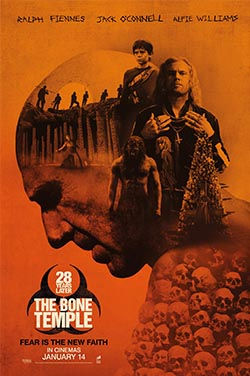The Trial of the Chicago 7 Movie Review
- Rob Cain

- Nov 15, 2020
- 3 min read

Released: 25th September 2020 (Netflix Release)
Length: 130 Minutes
Certificate: 15
Director: Aaron Sorkin
Starring: Sacha Baron Cohen, Eddie Redmayne, Alex Sharp, Jeremy Strong, John Carroll Lynch, Joseph Gordon-Levitt and Yahya Abdul-Mateen II
America has been no stranger to political upheaval; the current decade has been ripe with controversy, bitterness and division, but the same was also true of the 1960s and early seventies. In one particularly violent incident in Chicago, seven protest leaders were brought before the justice system, an event portrayed by the newest titular production from Aaron Sorkin.

The leaders in question include student leader Tom Hayden (Eddie Redmayne) leader of the international youth party Abbie Hoffman (Sacha Baron Cohen) and Rennie Davies (Alex Sharp) under the national mobilization committee to end the war in Vietnam among others. All of them were deeply opposed to American involvement in the overseas conflict of the time. An eighth defendant, Black Panther Party Chairman Bobby Seale (Yahya Abdul-Mateen II) is also tried alongside the protesters. Unfolding both in and out of the courtroom, Trial portrays these contentious events with the backdrop of discontent firmly pressing down on everyone involved.

It’s a film about political uproar, unrest and the gradual reveal of information; one that holds many similarities to today’s polarisation. As the charges against the accused grow more severe, the tensions between them and the judge rise. The closer details on what happened in the Chicago riots also come to light, showing that despite the character’s noble goals, they themselves were not infallible. This swapping between sequences, alongside some brief government consultation with prosecutor Richard Schultz (Joseph Gordon-Levitt) forms a well-paced narrative. It always keeps its momentum pointing forwards as the court case proceeds.

The film has a large and incredibly talented cast, all of whom give brilliant performances; the greatest praise I can give is how the narrative draws strong contrasts between their individual personalities and the change they want to enact. It’s a great way of displaying the wide range of cultural changes that had unfolded at the time. Like many courtroom dramas, it’s very heavy on dialogue, but each actor makes the most of the script to get across their own characteristics. Tom Haydon’s more composed mannerisms are severely tested when his group grows unruly, whereas the older David Dellinger (John Carroll Lynch) attempts to be more level-headed, but finds his frustrations coming up to the surface. Some of the strongest highlights of the performances come when they are out of the dock and holding impassioned debates with their lawyer William Kunstler (Mark Rylance) who attempts to dig out the full story in between sessions. If anything, the film’s only fault is that on occasion, some characters have more to do than others who are sometimes left to the background.

Chicago 7 is also beautifully shot all the way through, most notably with its superb lighting and authentic recreation of both setting and style. What’s even better however is the way the film seamlessly connects real-life footage with its own action, further emphasising its realistic tone. It doesn’t hold back from showing the brutal police crackdowns levelled at US citizens either and these moments are particularly harrowing at several intervals. The music rises to meet every scene, flawlessly matching the feel and tone of the entire production. With all its little details, most notably the opposing forces hurling insults outside the courthouse, Trial constantly gets across its sense of division.
Thanks to its excellent performances and seamless flow, The Trial of the Chicago 7 delivers an often-powerful recreation of discontent boiling over into anger. On occasion, it does become a bit unbalanced with its ensemble cast, but otherwise it’s a worthy chronicle of a dark time in America’s history.
Rating: 4.5/5 Stars (Brilliant)










Comments